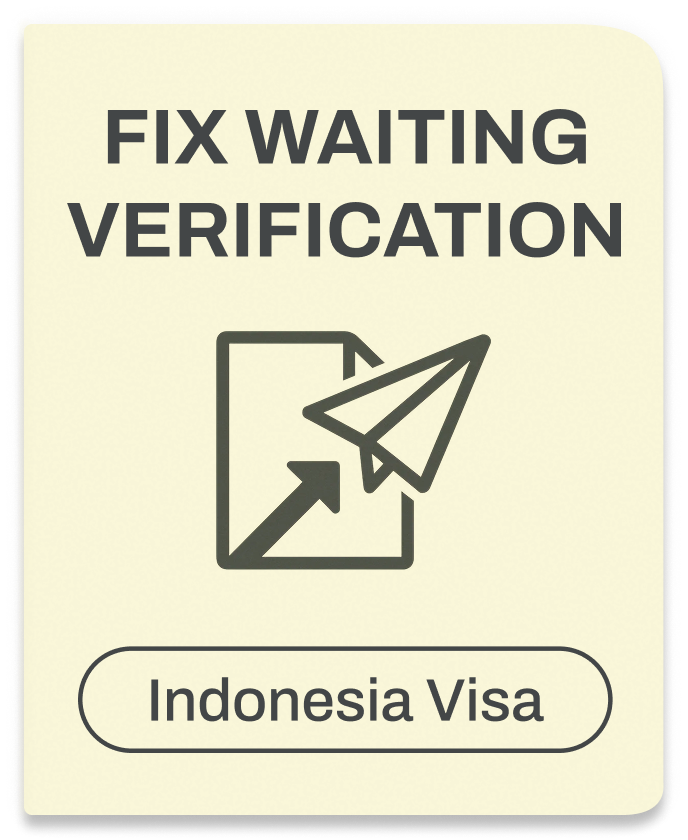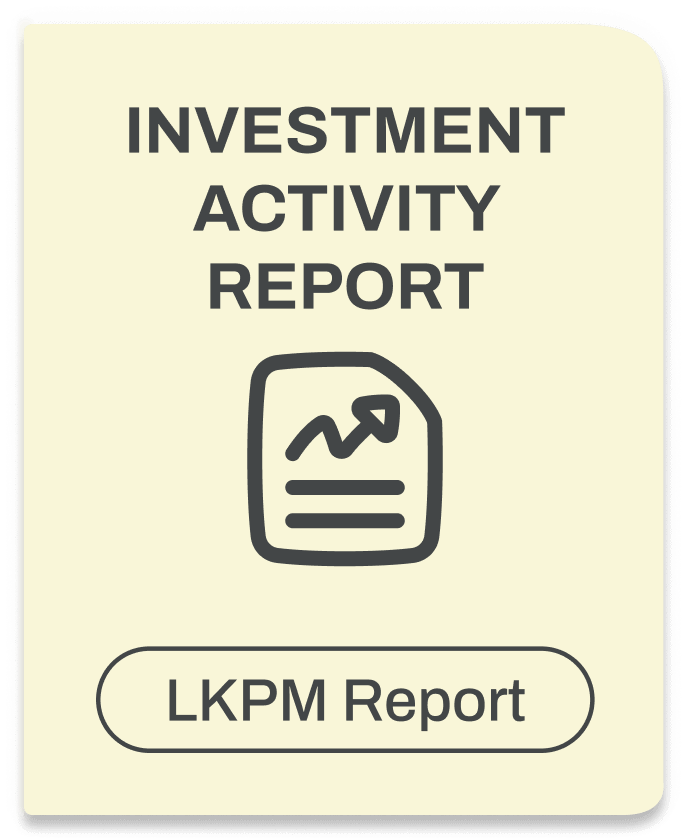Indonesian Identity Card (KTP, e-KTP, KIA & SKTT) for WNA & WNI
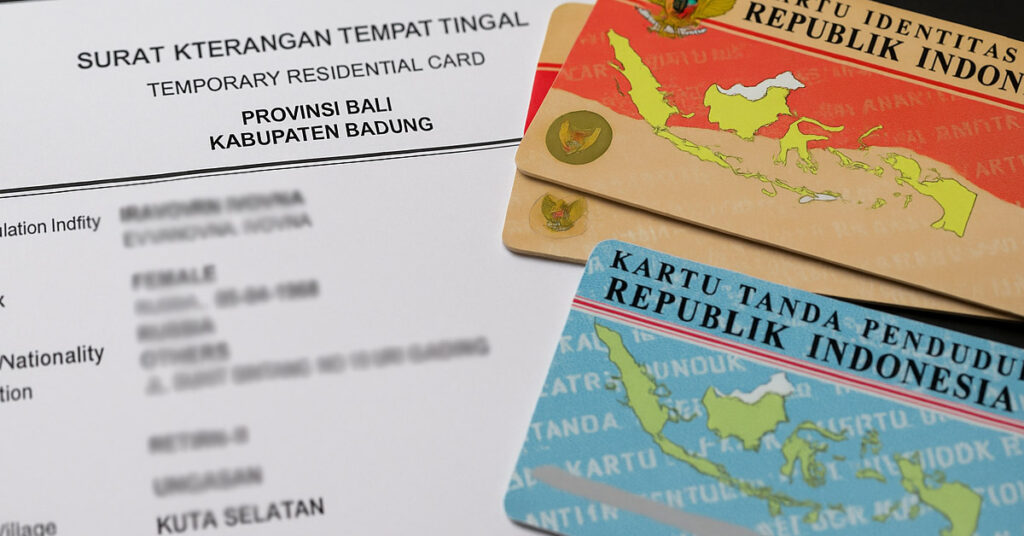
Last reviewed: September 2025 | Based on current Dukcapil regulations and Permendagri guidelines
Getting the right Indonesian identity card shouldn’t be confusing. Indonesia’s government has introduced several national programs to modernize ID cards, such as the e-KTP project and the recent launch of the Digital ID (IKD) app. Over the years, Indonesia has issued various types of ID cards, including the traditional KTP, citizenship cards, and now the e-KTP, reflecting the evolution of the country’s identity document system. This guide organizes everything by user type – whether you’re an Indonesian citizen, permanent resident, temporary resident, or parent of a child.
Table of Contents
📋 Reference Boxes
NIK 101: Your Digital Identity Number
Every Indonesian identity card has a 16-digit NIK (Nomor Induk Kependudukan) that follows you for life – it’s your unique identification number in the civil registration system. Think of it as Indonesia’s version of a social security number. Banks need it to verify your identity when opening a bank account. Schools need it. Government services require it. The electronic version (e-KTP) chip uses advanced technology to store your biometric data, including fingerprints and a photo, which enhances the security and efficiency of the identity verification process. Without your NIK, accessing public services becomes really difficult.
Is It Really Free?
Yes, 100% free. Indonesian law mandates all identity document issuance is free nationwide – you should never pay any amount (not even Rp 1) for your KTP Indonesia. Anyone charging fees is acting against government regulations. The application process, verification, photo, fingerprints, and completion are all covered by the government. Report illegal charges to local government complaint hotlines or directly to civil registry leadership. Source: Permendagri regulations on civil registration services
Processing Time Ranges
- Urban areas: 1-3 working days
- Rural areas: 3-7 working days
- Same day: Available in some locations for urgent cases
- Note: Service standards vary by regency – ask your local Dukcapil office
🇮🇩 For Indonesian Citizens (WNI)
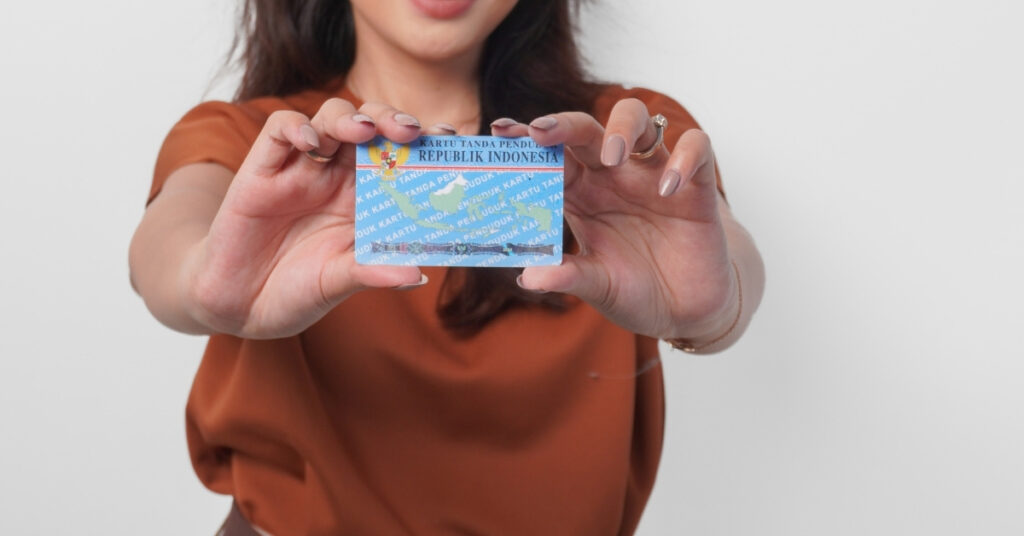
If you’re an Indonesian citizen, the e-KTP is your gateway to everything in the country. The Kartu Tanda Penduduk (KTP) is Indonesia’s official identity card for citizens, serving as a crucial document for accessing public services and affirming your status as part of the Indonesian community. This electronic identity card connects Indonesians to their national identity and social belonging, while also enabling access to government services, helping you open a bank account, register for school, and proving your citizenship status. Holding an e-KTP comes with responsibilities, such as keeping your information updated and complying with legal requirements. Once you get it, you’re set for life – no renewals, no expiration dates to worry about. Let’s walk through exactly what you need and how to get your e-KTP quickly and easily.
Who Needs e-KTP?
- Indonesian citizens age 17 or older
- OR married persons (regardless of age)
- Must be an Indonesian national by birth or naturalization
Document Validity
Valid for life – the e-KTP is issued by the civil registry officer and remains valid forever. No expiration date, no renewals needed! Only reprint if lost, damaged, or when major life changes occur (marriage, address change to different regency).
What You Need to Apply
Essential documents for the application process:
- Family Card (Kartu Keluarga/KK) showing your current address
- Birth certificate OR marriage certificate (proof of marital status)
- Previous KTP (if moving from another regency and need address verification)
Local variations: Some areas require RT (neighborhood) verification letters – contact your local civil registry office first to verify requirements in accordance with local implementation.
Step-by-Step Application
Before starting, pay close attention to each step to avoid delays or errors during the application process.
- Prepare documents – Gather required papers plus copies for verification
- Get local verification – Obtain RT letter if required in your area
- Visit the civil registry office – Go early to avoid crowds
- Queue and submit – Take a number, submit documents to the registration officer
- Biometrics capture – Photos, fingerprints, digital signature (officer will verify identity matches)
- Collect receipt – Keep this proof safe for pickup
- Return for card – Come back on the scheduled date for completion
Common Scenarios & FAQs
- First-time applicant at 17: Bring birth certificate + parents’ Family Card (KK). Having a knowledgeable person assist you during the application process can help ensure compliance and understanding.
- Just got married: A Marriage certificate updates your marital status immediately in the civil registration system. A person familiar with the procedure can guide you through the necessary steps.
- Moved regencies: Previous identity card + new address proof required for verification. It is helpful to have a person assist with the documentation to avoid errors.
Troubleshooting
- “My old e-KTP shows expiry date – do I renew?” No! The law changed making e-KTP valid for life with no expiration. Ignore old dates on your identity card. If government services desks insist it’s expired, ask for supervisor and explain current regulations.
- “Wrong information on the card?” Visit the civil registry with the correct documents (birth certificate, marriage license, etc.). The officer will process data corrections that flow through the national population database system.
🌍 For Permanent Residents (WNA with ITAP)
As a foreigner with permanent residence status in Indonesia, you have the right to get an e-KTP just like Indonesian citizens. The identity card KTP (e-KTP) is the official Indonesian identification document for permanent residents, featuring biometric data and a unique identification number, and is used for legal compliance, identity verification, and access to essential services. The key difference? You can’t vote in elections – that’s reserved for Indonesian citizens only. But for daily life, your e-KTP (WNA) works almost exactly like the citizen version. Here’s everything you need to know about getting yours.
Who Gets e-KTP (WNA)?
- Foreign nationals with a valid ITAP (permanent residence permit)
- Age 17 or older OR married
- Cannot vote in Indonesian elections
Document Validity & Limits
Holding a valid e-KTP is essential for permanent residents to comply with Indonesian regulations. Valid as long as your ITAP remains active. Use for banking, utilities, vehicle registration, and most government services – but not for voting rights.
What You Need to Apply
Required documents:
- Valid ITAP
- Current passport or travel document
- Family Card for foreigners (KK WNA)
Step-by-Step Application
Same process as Indonesian citizens, but with ITAP-specific document verification.
ITAP vs KITAS: Which ID Do I Need?
| Your Permit | Your ID Document | Voting Rights | Service Access |
| KITAP (Permanent) | e-KTP (WNA) | No | Full banking, utilities, vehicle registration |
| KITAS (Temporary) | SKTT only | No | Basic services, banking with restrictions |
FAQs & Troubleshooting
“Can I use this like Indonesian citizens?” Almost the same services except voting. Banks and utilities treat it equally.
“Do I need to renew when ITAP renews?” Check with Dukcapil. Usually cards remain valid, but data may need updating. After successful completion of the process, applicants will receive their e-KTP from the authorities.
✈️ For Temporary Residents (WNA with KITAS)

Here’s where many expats get confused. If you have a KITAS (temporary residence), you don’t get a KTP – you get an SKTT instead. Government policy requires the issuance of SKTT for temporary residents to ensure proper documentation and compliance with local regulations.
Think of SKTT as your official “I live here” certificate. It’s not an identity card like e-KTP, but it serves a similar purpose for temporary residents. You’ll need it for banking, getting phone contracts, and accessing local services. Don’t worry – it’s just as useful for daily life, even though it has a different name.
Who Needs SKTT?
- Foreign nationals with a KITAS (temporary stay permit)
- All ages – children and adults
- This is NOT a KTP – common expat confusion
Document Purpose & Validity
SKTT (Surat Keterangan Tempat Tinggal) proves your legal residence. Unlike the plastic e-KTP, the SKTT is typically issued on paper. Valid during your KITAS period. Essential for accessing local services.
What You Need to Apply
Required documents:
- Valid KITAS
- Current passport
- Sponsor letter
- Domicile letter from local authorities (RT/RW)
Step-by-Step Application
- Get a sponsor letter – From employer/family sponsor
- Obtain domicile letter – RT/RW verification of address
- Visit local Dukcapil – Bring all documents plus copies
- Submit application – Officer processes SKTT request
- Collect certificate – Usually ready within 1-3 days
SKTT vs e-KTP (WNA): What’s the Difference?
| Document | For Whom | Banking | Utilities | Vehicle Registration |
| SKTT | KITAS holders | Basic accounts | Yes | Yes |
| e-KTP (WNA) | ITAP holders | Full services | Yes | Yes |
FAQs & Troubleshooting
“Why don’t I get KTP like permanent residents?” KITAS = temporary status. SKTT proves residence without permanent resident rights.
“Can I open bank accounts with SKTT?” Yes, but some banks have additional requirements. Shop around.
👶 For Children (Under 17)
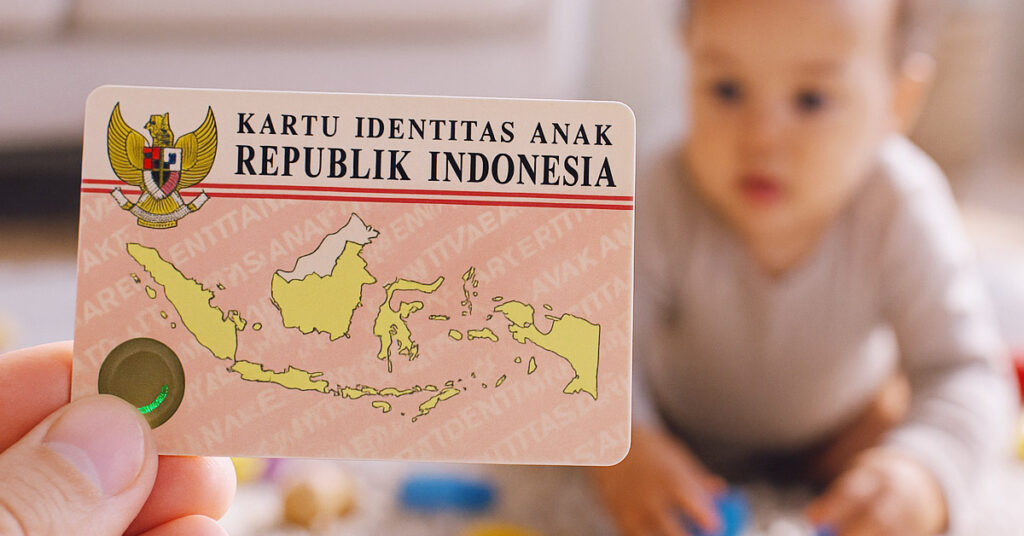
Kids need official identity documents too! In Indonesia, children get their own special ID card called KIA (Kartu Identitas Anak). It’s like a starter version of the adult e-KTP. Your child will need this for school enrollment, healthcare services, and even domestic travel. The best part? It automatically converts to a regular e-KTP when they turn 17 or get married. Getting a KIA early makes your child’s life much easier and sets them up for a smooth transition to adult identity documents.
Who Needs KIA?
- Children under 17 years old
- Not yet married
- Both Indonesian and foreign children (with appropriate parent status)
KIA Validity by Age
| Age Group | Validity Period | Next Step |
| 0-5 years | Until 5th birthday | New KIA required |
| 5-17 years | Until 17th birthday | Convert to e-KTP |
| Any age if married | Immediately invalid | Must get e-KTP |
What You Need to Apply
Required documents:
- Parents’ valid e-KTP (both if available)
- Family Card (KK) showing a child
- Child’s birth certificate
- Recent photo of a child
Step-by-Step Application
- Gather family documents – Parents’ IDs plus child’s birth certificate
- Visit Dukcapil together – Bring child for photo if required
- Submit application – Officer verifies family relationship
- Photo session – Child’s photo taken on-site
- Collect KIA – Usually ready within 1-3 days
Why KIA Matters
Essential for:
- Healthcare registration and services
- School enrollment and administration
- Domestic travel (planes, hotels)
- Government program access
- Future e-KTP conversion
Conversion to e-KTP
Automatic triggers:
- Child turns 17
- Child gets married (any age)
- KIA becomes invalid immediately – must apply for e-KTP
FAQs & Troubleshooting
“My child is 16 and traveling – is KIA enough?” Yes for domestic travel. For international, check passport requirements.
“KIA lost before 17th birthday?” Get a free replacement with police report + parents’ documents.
📞 Getting Help
Local Dukcapil offices: Your first stop for all questions. National complaint lines: Report illegal fees or poor service. Social media: Many Dukcapil offices respond on Facebook/Instagram
Remember: All identity document services in Indonesia are completely free. Your NIK follows you for life. When in doubt, contact your local Dukcapil office directly.
Note: Some procedures may vary by regency. Always confirm current requirements with your local civil registration office.
Ready to Apply or Extend Your Visa?
Let our visa specialists handle your application.












